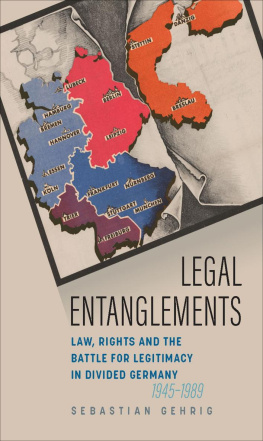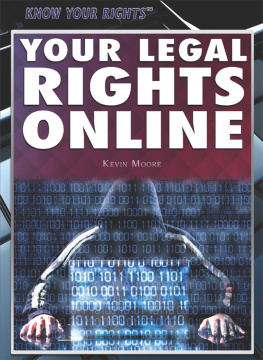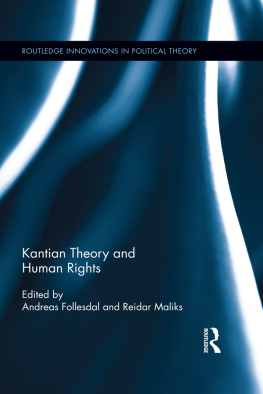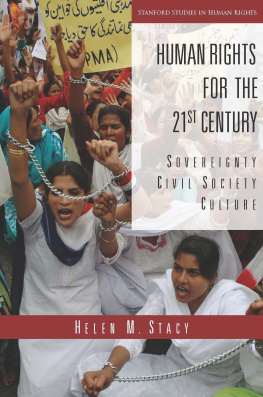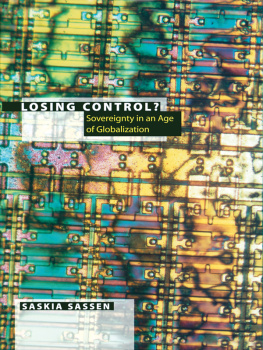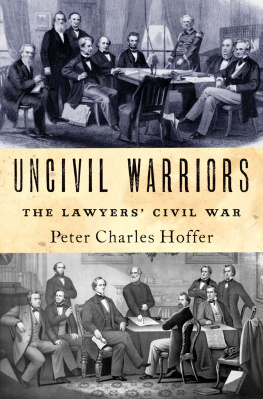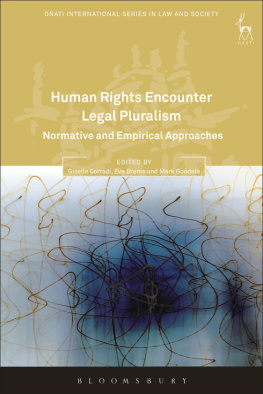First published in 2021 by
Berghahn Books
www.berghahnbooks.com
2021 Sebastian Gehrig
Every reasonable effort has been made to supply complete and correct credits for images inside this book. If there are errors or omissions, please contact the publisher so that corrections can be addressed in any subsequent edition.
All rights reserved. Except for the quotation of short passages for the purposes of criticism and review, no part of this book may be reproduced in any form or by any means, electronic or mechanical, including photocopying, recording, or any information storage and retrieval system now known or to be invented, without written permission of the publisher.
Library of Congress Cataloging-in-Publication Data
Names: Gehrig, Sebastian, author.
Title: Legal entanglements : law, rights and the battle for legitimacy in divided Germany, 19451989 / Sebastian Gehrig.
Description: New York : Berghahn Books, 2021. | Includes bibliographical references and index.
Identifiers: LCCN 2020051919 (print) | LCCN 2020051920 (ebook) | ISBN 9781800730830 (hardback) | ISBN 9781800730847 (ebook)
Subjects: LCSH: LawGermanyHistory19451990
Classification: LCC KK190 .G44 2021 (print) | LCC KK190 (ebook) | DDC 349.4309/045dc23
LC record available at https://lccn.loc.gov/2020051919
LC ebook record available at https://lccn.loc.gov/2020051920
British Library Cataloguing in Publication Data
A catalogue record for this book is available from the British Library
ISBN 978-1-80073-083-0 hardback
ISBN 978-1-80073-084-7 ebook
Acknowledgements
It is a great pleasure to thank all the institutions and people who have contributed to writing this book. The many trips to gather sources for this book would not have been possible without the generous financial support of the Karl-Jaspers Centre for Advanced Transcultural Studies at Heidelberg and the German Research Foundation, the Fritz-Thyssen Foundation, the John-Fell-Fund Oxford, the German Academic Exchange Service (DAAD) and the British Academy/Leverhulme Trust Small Grant Divided Germanys Legal Cold War and the United Nations, 194573 (SG141620). I would like to thank especially all the friendly and helpful archivists in German, British, American and Swiss archives who patiently helped me identify materials in their collections. Aspects of are explored in more detail in articles published in the Journal of Contemporary History and Historische Zeitschrift.
At Heidelberg, Edgar Wolfrum gave me the freedom to develop first ideas on a history of law during the Cold War as a doctoral student. Cord Arendes, Cordia Baumann, Marcel Berlinghoff, Kathrin Hammerstein, Angela Siebold, Martin Stallmann and Cathrin Weykopf discussed my ideas with me during many enjoyable evenings after research seminars at the Orange. Barbara Mittler invited me to join her reading group at the Institute of Chinese Studies and supported me throughout the work on my dissertation and after. Encouraged by Barbara Mittler, the doctoral research group Rethinking Trends generously funded by the Karl-Jaspers Centre allowed me to work together with Laila Abu-Er-Rub, Jennifer Altehenger, Nora Frisch, Lena Henningsen, Annika Jst, Cora Jungbluth, Jennifer May, Petra Thiel, Sun Liying and Huang Xuelei for three years. The exposure to Asian history and culture during this time expanded my horizons and was instrumental in helping me situate my own work in broader historical contexts.
At UCL, Mark Hewitson showed me the ropes of what it means to teach at university and let me take over his office for a year. The warm and collegiate atmosphere at the German Department made the transition into British academia a real pleasure. My thanks go to Judith Beniston, Stephanie Bird, Seb Coxon, Mererid Puw Davies, Mary Fulbrook, Geraldine Horan, Susanne Kord and Martin Liebscher for including me as one of their own.
At Oxford, Jane Garnett and Matthew Kempshall made Wadham College feel like more than a workplace. Together with George Southcombe, they taught me how to become a better teacher, for which I am very grateful. Paul Betts and Nick Stargardt welcomed me as co-convenor into the Modern German History Research Seminar. They both taught me a great deal on how to do history and German history more specifically and gave me unwavering support in developing the framework for this book. In doing so, they have transformed how I think about the history of Germany in its European and global contexts. I will always be grateful for their mentorship and friendship. The unique environment at the Faculty of History inspired and enriched many aspects of the manuscript. I very much benefitted from the expertise and comments of Jakub Benes, Tom Buchanan, Patricia Clavin, Martin Conway, Robert Gildea, Ruth Harris, David Hopkin, Rana Mitter, Hartmut Pogge-Strandmann, Sian Pooley, David Priestland, Peter Pulzer, Anna Ross, Stephen A. Smith and Jonathan Wright. The Fritz-Thyssen Foundation and the Oxford Fell-Fund allowed me to co-organize a conference on Law, (Inter-)Nationalism and the Global Cold War, 194589 at the Oxford China Centre in 2015. Over two days, the wonderful papers and discussions inspired a lot of ideas for this book. Through the annual meetings at Cumberland Lodge during my time as DAAD-Fachlektor at Oxford, I also had the good fortune to meet Tim Buchen, Udo Grashoff, Henning Grunwald, Kathrin Hamenstdt, Rike Krmer, Nina Lck, Jochen Mller, Barbara Nastoll, Julia Partheymller, Bjrn Siegel, Daniel Siemens and Kim Wnschmann. I have fond memories of the ritual of our annual meetings at the end of busy autumn terms and discussions around the fireplace at the lodges bar.
Living between London and Oxford for the last couple of years has allowed me to discuss my work with Arnd Baurkmper, Martin H. Geyer, Birthe Kundrus, Johannes Paulmann, Andreas Rdder and Willibald Steinmetz when they spent time as visiting professors in the UK. The German History Institute London and the Institute of Historical Research provide wonderful nodes for exchanges between historians of Germany. I want to thank Tobias Becker, Jim Bjrk, Jeff Bowersox, Alexander Clarkson, Chris Dillon, Andreas Gestrich, Christina von Hodenberg, Valeska Huber, David Motadel, Felix Rmer, Michael Rowe, Katrin Schreiter, Martina Steber and Astrid Swenson for the many chats between panels or after lectures over dinner from which I have always benefitted.

